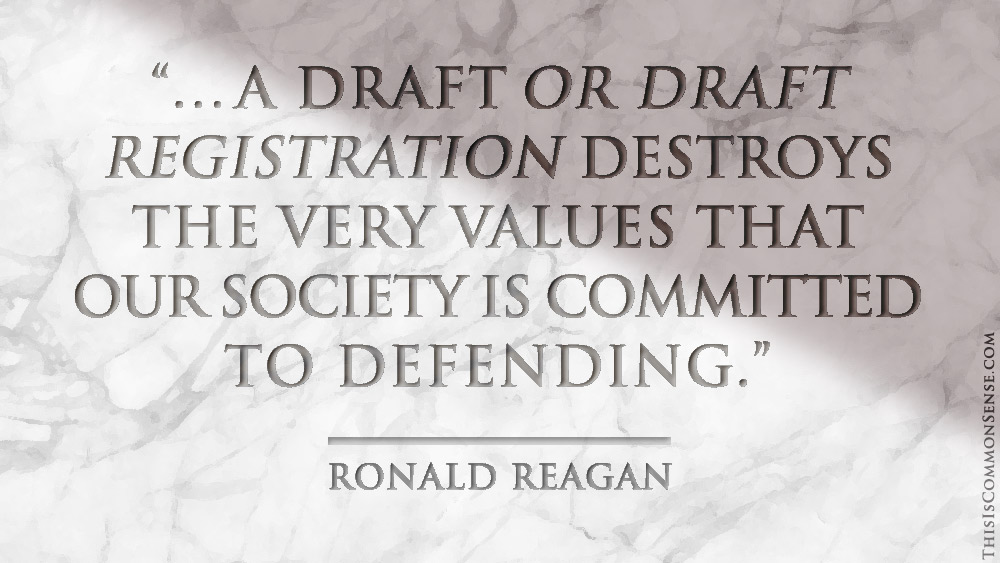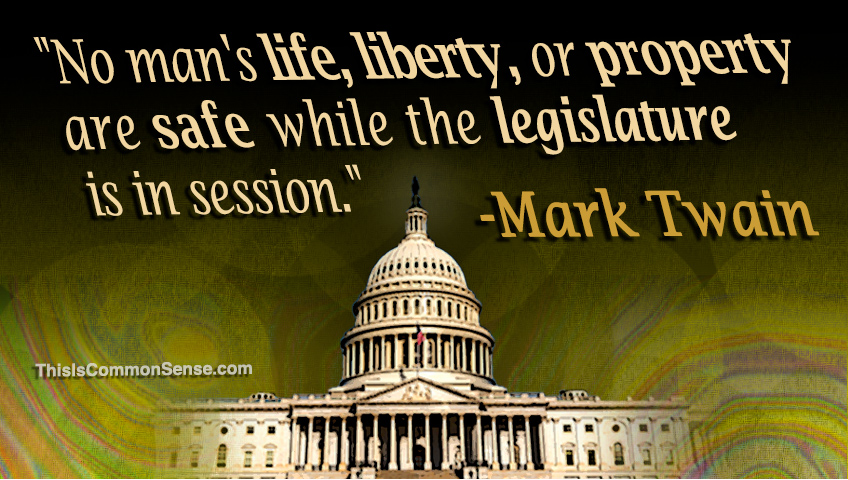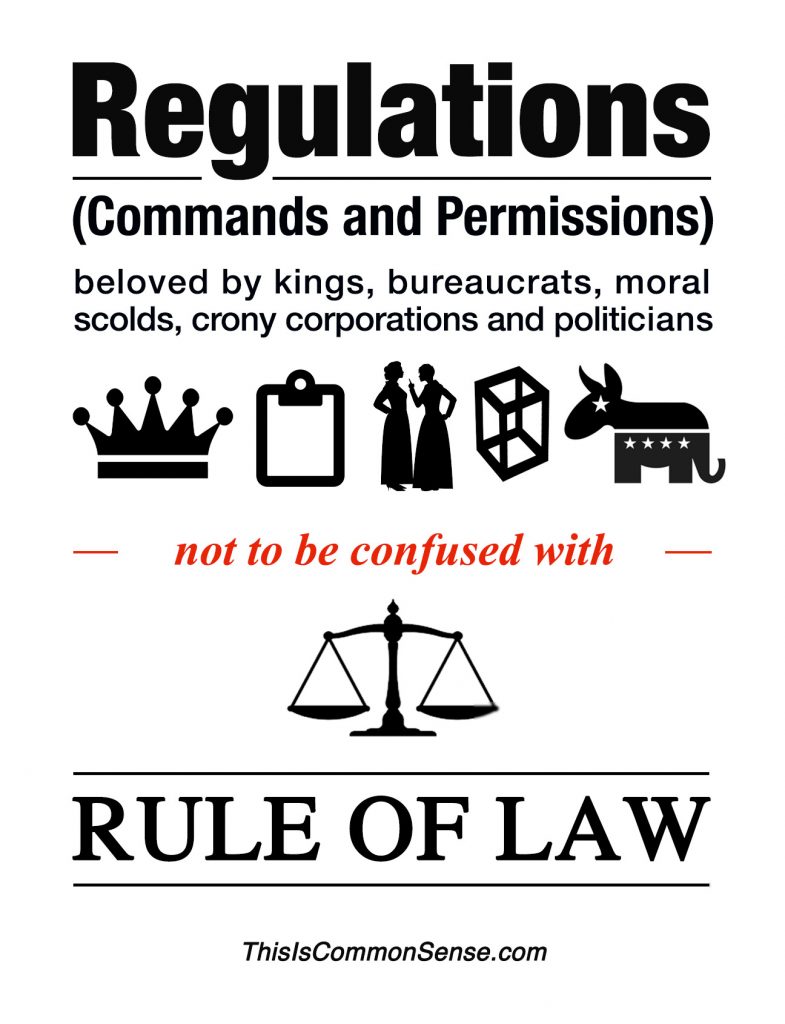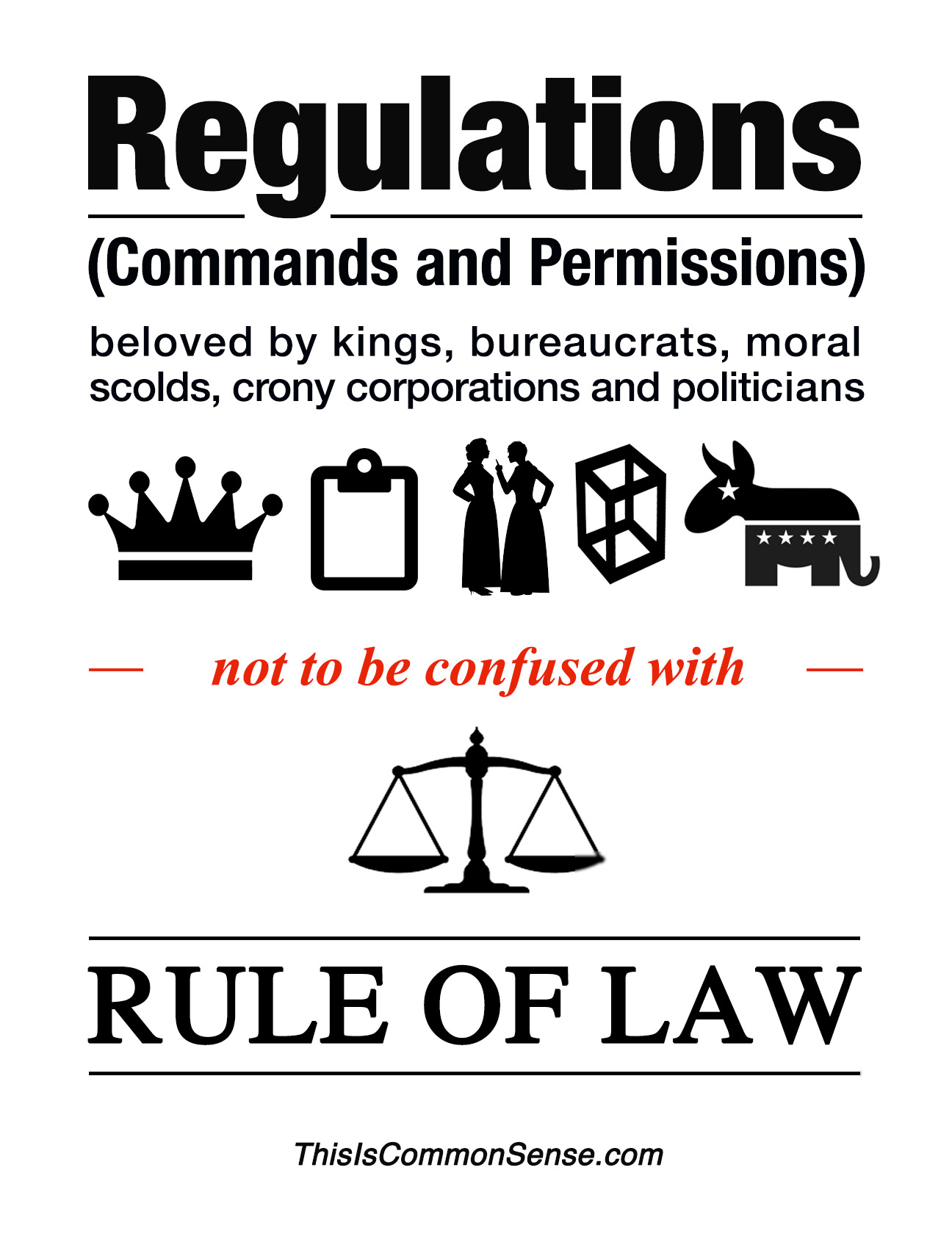
Category: meme


In the 20th century, 100 million people were killed by “caring” socialist ideologues who were certain they knew exactly what everybody else “deserved” and who were eager to use government violence to enforce those opinions.
—
See all recent commentary
(simplified and organized)
The Uncommon Author of Common Sense

Last week we noted the 243rd anniversary of the publication of Common Sense — Thomas Paine’s Common Sense, that is.
The importance of this document for the formation of the United States of America can hardly be over-estimated. And the general good … sense … of the pamphlet still impresses. It is, in fact, one of the classics of Western literature, political polemics, and social philosophy. And it radicalized Americans to dare declare their independence from King George III.
We here at ThisIsCommonSense.com can hardly be more emphatic: if you have not read the pamphlet, you really should. If your spouse, or children, or neighbors have not read it, please send them a copy. We provide one in our Library, as a webpage.
And, also in our Library, we offer something else by Tom Paine, his essay against slavery. It seems to be one of the first anti-slavery pamphlets published in America. Read our webpage or download the PDF. And send it to your friends.
And enemies.
The fight against slavery is inextricably linked, in American history, to the fight for freedom. Slavery is one of freedom’s most stark opposites.
“One of?” we hear you protest. Well, tyranny is slavery’s twin. But we grant you, maybe they are the same thing: tyranny is the slavery of a populace, slavery the tyranny over an individual person.
Paine wrote even more controversial works. He also went to France to aid in the French Revolution only to get put in prison for his trouble. And he came back to America, for refuge, and was forsaken by its people, dying in poverty.
His ideas are not impoverished though. And not dead. Not so long as we keep them alive.
This is Common Sense. And he was Tom Paine, American hero.
Twain on Congress and Liberty

How to Know

Many people don’t seem to realize that a prohibition (banning something) is AUTHORITARIAN BY DEFINITION. Whether it’s drugs, guns, alcohol, offensive language, dangerous ideas, texting while walking(!), plastic straws(!)… authoritarians are perfectly happy to use government violence to force the rest of us behave as they wish. Because they think they know what’s right for everybody else. They are the authorities. They are the keepers of the truth. For the rest of us, the message is clear: obey or be punished.
The spectacle of people screaming about Trump’s “authoritarianism” while simultaneously demanding more regulations, more bans, more restrictions… would be funny if it weren’t so dangerous.
A “rule of law” is based on general principles, and makes room for — or, better yet, is based upon — the protection of individual rights.
It used to be common to say, “a rule of law, not of men”; it was even as common in political oratory as was spouted out over drinks at the Rotary. But as the modern Regulatory State has grown in scope and power, most folks seem to have lost track of the notion. It is now not even a cliché. Few even of our most educated folks can explain this idea. Vast swaths of the mis-educated public appear not to “get” the idea of limiting government to the enforcement of a few general principles; instead, they cry for more “regulations” (along with additional spending and maybe even a whole new division of the executive government) every time a crisis, tragedy or atrocity occurs.
So we are left with a political culture in which the words of Tacitus seem to a majority as implausible at best, evil at worst: “The more the laws, the more corrupt the State.” Contrary to today’s trendy prejudice, we do not need “more laws” — edicts legislated by representatives, or regulations concocted by bureaucracies — we need Law.
As in, “a rule of Law.”

—
See all recent commentary
(simplified and organized)
An Important Distinction

A “rule of law” is based on general principles, and makes room for — or, better yet, is based upon — the protection of individual rights.
It used to be common to say, “a rule of law, not of men”; it was even as common in political oratory as was spouted out over drinks at the Rotary. But as the modern Regulatory State has grown in scope and power, most folks seem to have lost track of the notion. It is now not even a cliché. Few even of our most educated folks can explain this idea. Vast swaths of the mis-educated public appear not to “get” the idea of limiting government to the enforcement of a few general principles; instead, they cry for more “regulations” (along with additional spending and maybe even a whole new division of the executive government) every time a crisis, tragedy or atrocity occurs.
So we are left with a political culture in which the words of Tacitus seem to a majority as implausible at best, evil at worst: “The more the laws, the more corrupt the State.” Contrary to today’s trendy prejudice, we do not need “more laws” — edicts legislated by representatives, or regulations concocted by bureaucracies — we need Law.
As in, “a rule of Law.”

—
See all recent commentary
(simplified and organized)